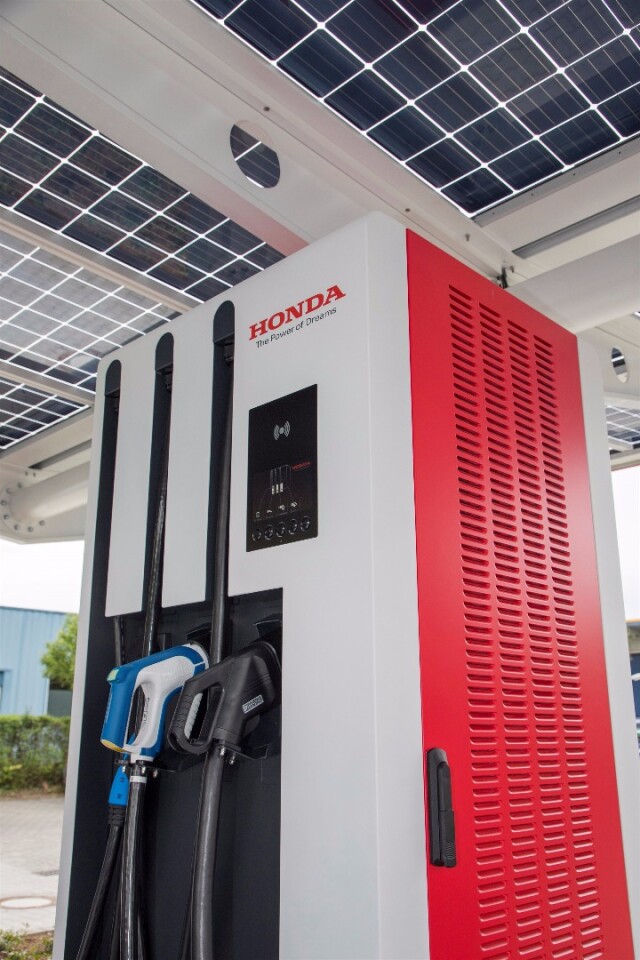Electric cars are growing in popularity, but there are still some infrastructure issues holding them back from widespread adoption. Manufacturers are yet to agree on a standard plug, which means charging stations may not have the right connector for your car. There's also the issue of meeting demand and fast charging multiple cars at once. A new Honda charge station in Europe aims to solve those problems.
The new facility in Offenbach, Germany is being billed as the "most advanced public charging station" in Europe. It's powered by renewable energy sources, one of which is the array of photovoltaic panels on its roof. Peugeot has flagged a similar approach with its concept charging stations, although none of them have made it to production.
All told, the 940V station is able to deliver up to 150 kW of energy across four separate connections at once. By way of comparison, Tesla Superchargers in Europe can charge at up to 135 kW, and American chargers may soon work at up to 150 kW. Honda says its high voltage fast-charge capability will become more relevant as the next generation of electric cars starts to hit the road, and more people need to top up at the same time.

There are currently four different charging standards used across Europe, but Honda hasn't specified which will be supported beyond saying the station will have "different types of connectors."
Along with its advanced electric charge stations, Honda is planning to install a hydrogen filling station – complete with its own hydrogen generation – at the site in Offenbach. The company hasn't announced when it will be open, but says it can be powered and run on renewable energy. Honda also says the filling station will have intelligent energy storage capability, and the ability to feed power back into the grid for local power companies.
"Europe's most advanced public charging station" opened on May 29.
Source: Honda







